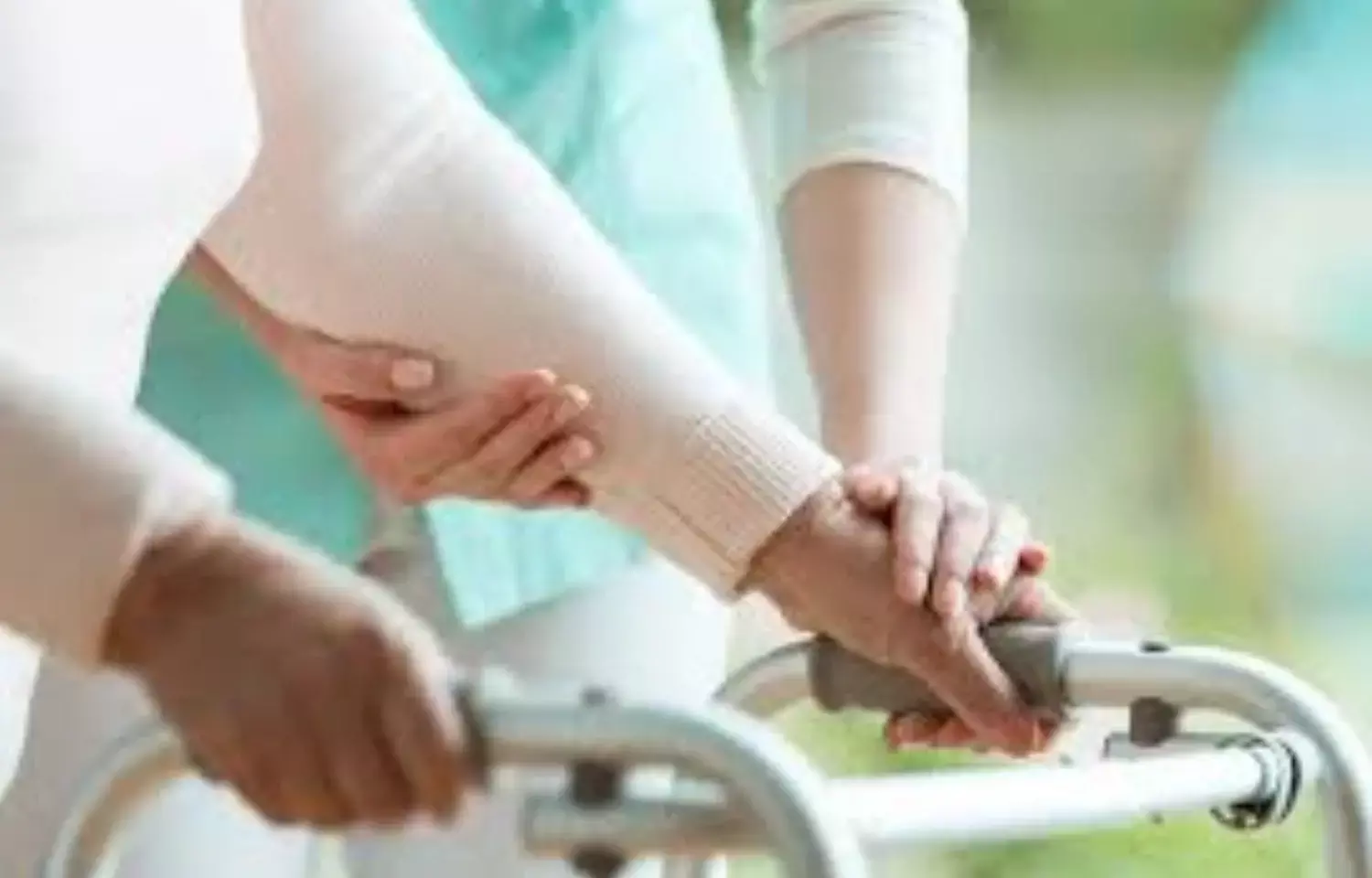- Home
- Medical news & Guidelines
- Anesthesiology
- Cardiology and CTVS
- Critical Care
- Dentistry
- Dermatology
- Diabetes and Endocrinology
- ENT
- Gastroenterology
- Medicine
- Nephrology
- Neurology
- Obstretics-Gynaecology
- Oncology
- Ophthalmology
- Orthopaedics
- Pediatrics-Neonatology
- Psychiatry
- Pulmonology
- Radiology
- Surgery
- Urology
- Laboratory Medicine
- Diet
- Nursing
- Paramedical
- Physiotherapy
- Health news
- Fact Check
- Bone Health Fact Check
- Brain Health Fact Check
- Cancer Related Fact Check
- Child Care Fact Check
- Dental and oral health fact check
- Diabetes and metabolic health fact check
- Diet and Nutrition Fact Check
- Eye and ENT Care Fact Check
- Fitness fact check
- Gut health fact check
- Heart health fact check
- Kidney health fact check
- Medical education fact check
- Men's health fact check
- Respiratory fact check
- Skin and hair care fact check
- Vaccine and Immunization fact check
- Women's health fact check
- AYUSH
- State News
- Andaman and Nicobar Islands
- Andhra Pradesh
- Arunachal Pradesh
- Assam
- Bihar
- Chandigarh
- Chattisgarh
- Dadra and Nagar Haveli
- Daman and Diu
- Delhi
- Goa
- Gujarat
- Haryana
- Himachal Pradesh
- Jammu & Kashmir
- Jharkhand
- Karnataka
- Kerala
- Ladakh
- Lakshadweep
- Madhya Pradesh
- Maharashtra
- Manipur
- Meghalaya
- Mizoram
- Nagaland
- Odisha
- Puducherry
- Punjab
- Rajasthan
- Sikkim
- Tamil Nadu
- Telangana
- Tripura
- Uttar Pradesh
- Uttrakhand
- West Bengal
- Medical Education
- Industry
Physiotherapy with cognitive behavioral therapy improve functional movement disorder symptoms: Study

A new study published in the Journal of American Medical Association suggests that the physical components of patients' quality of life and the symptoms of Functional Movement Disorder (FMD) are significantly improved by multimodal treatment (physiotherapy plus cognitive behavioral therapy).
Functional neurological disorders are common neurological conditions that often present as motor and/or sensory symptoms in young adults. These symptoms are seen as involuntary and originate from the voluntary motor or somatosensory neural systems. FMDs and seizures are the most common symptoms within the FND spectrum. The precise cause of FMD is still unknown, however important brain circuits that are disrupted in these individuals have been identified as regulating emotional processing, attention, and movement agency. Although psychological treatments are very significant, their effectiveness has not been thoroughly investigated to yet, and the studies that have been conducted have been limited by pertinent methodological issues. Therefore, Daniel Macías-García and team conducted this study in order to evaluate the effectiveness of interdisciplinary care for FMDs.
This was a single-center, randomized clinical study with a parallel design and rater blinding. The participants were drawn from a national referral center for movement disorders, the Movement Disorders Unit at the Hospital Universitario Virgen Rocio in Seville, Spain. The patients included had to be at least 18 years old with a verified FMD diagnosis and be able to provide permission. Patients who did not satisfy the eligibility requirements or refused to participate were omitted. The patients were randomly allocated in a 1:1 ratio to multimodal treatment (physiotherapy plus cognitive behavioral therapy) or a control intervention (psychological support). The primary objectives were differences in the quality of life of the patients from baseline to months 3 and 5 . Linear mixed models were used to account for baseline intensity and apply Bonferroni correction.
40 persons with functional mobility impairments participated in this parallel randomized clinical study. The physical components of quality of life were considerably improved by multimodal therapy. While there was a nonsignificant improvement in general health self-perception, there was no significant difference between the interventions in terms of mental health-related quality of life. At months 3 and 5 following the intervention, 42% and 47% of patients in the multidisciplinary treatment group reported improved health when compared to 26% and 16% in the control group, respectively. Overall, the results revealed that multimodal therapy significantly improve symptoms and physical components of the quality of life of individuals with functional movement disorders when compared to nondirected psychological support and education.
Reference:
Macías-García, D., Méndez-Del Barrio, M., Canal-Rivero, M., Muñoz-Delgado, L., Adarmes-Gómez, A., Jesús, S., Ojeda-Lepe, E., Carrillo-García, F., Palomar, F. J., Gómez-Campos, F. J., Martin-Rodriguez, J. F., Crespo-Facorro, B., Ruiz-Veguilla, M., & Mir, P. (2024). Combined Physiotherapy and Cognitive Behavioral Therapy for Functional Movement Disorders. In JAMA Neurology. American Medical Association (AMA). https://doi.org/10.1001/jamaneurol.2024.2393
Neuroscience Masters graduate
Jacinthlyn Sylvia, a Neuroscience Master's graduate from Chennai has worked extensively in deciphering the neurobiology of cognition and motor control in aging. She also has spread-out exposure to Neurosurgery from her Bachelor’s. She is currently involved in active Neuro-Oncology research. She is an upcoming neuroscientist with a fiery passion for writing. Her news cover at Medical Dialogues feature recent discoveries and updates from the healthcare and biomedical research fields. She can be reached at editorial@medicaldialogues.in
Dr Kamal Kant Kohli-MBBS, DTCD- a chest specialist with more than 30 years of practice and a flair for writing clinical articles, Dr Kamal Kant Kohli joined Medical Dialogues as a Chief Editor of Medical News. Besides writing articles, as an editor, he proofreads and verifies all the medical content published on Medical Dialogues including those coming from journals, studies,medical conferences,guidelines etc. Email: drkohli@medicaldialogues.in. Contact no. 011-43720751


